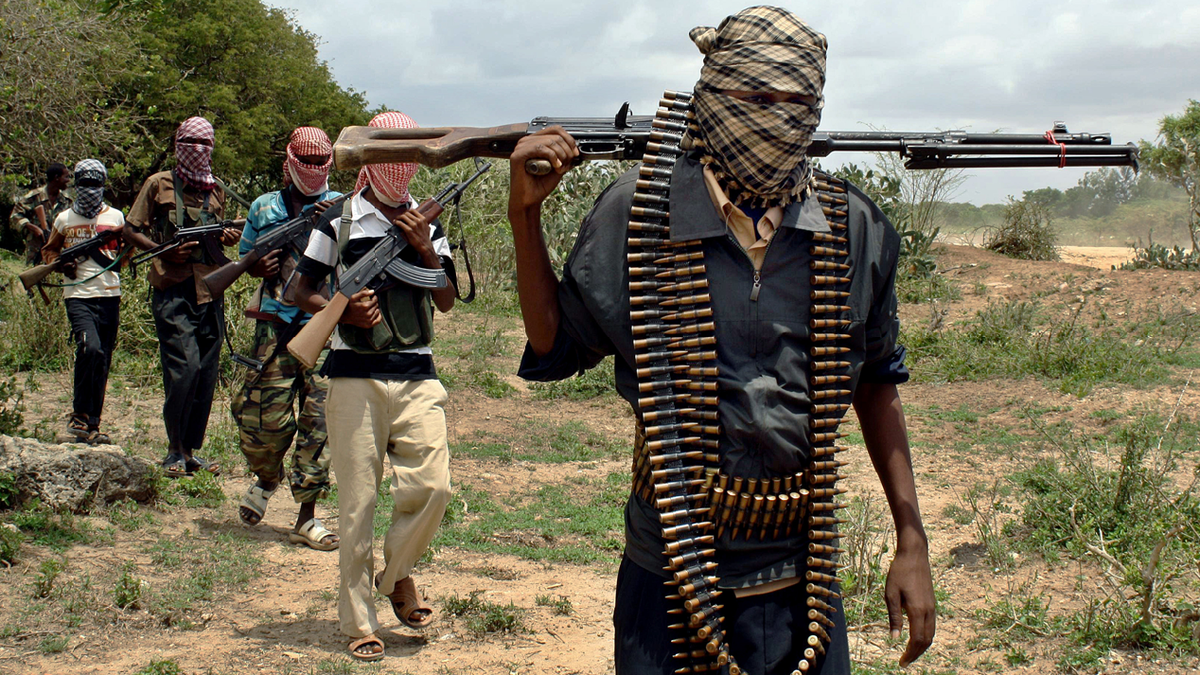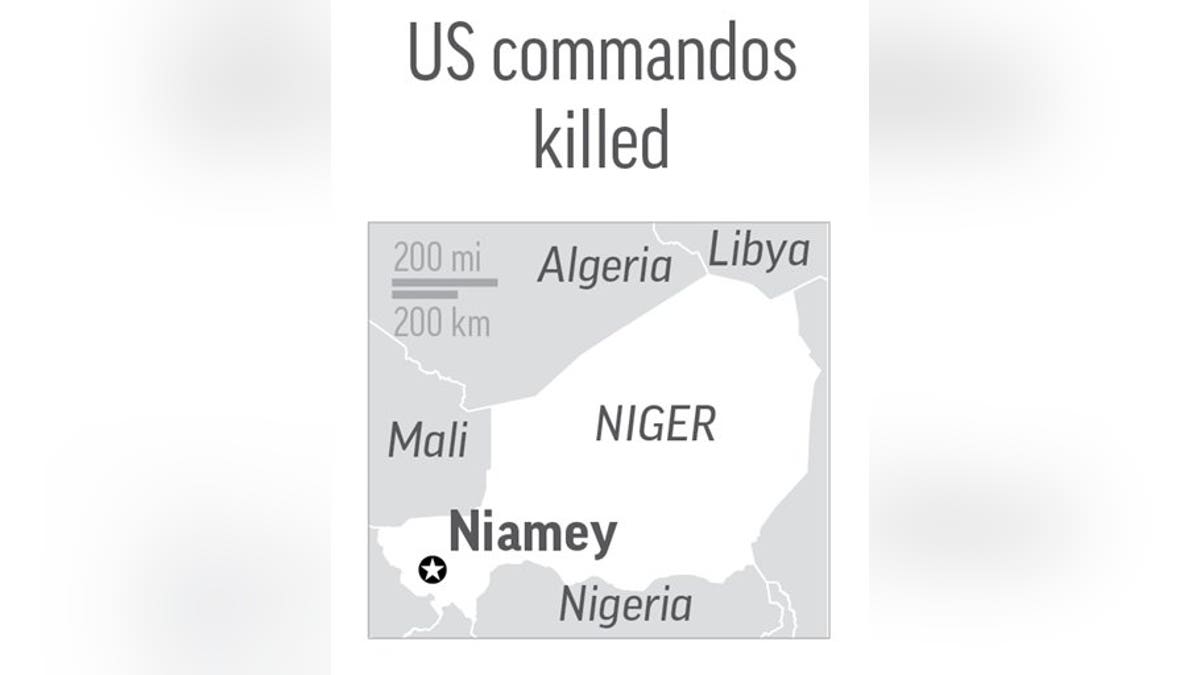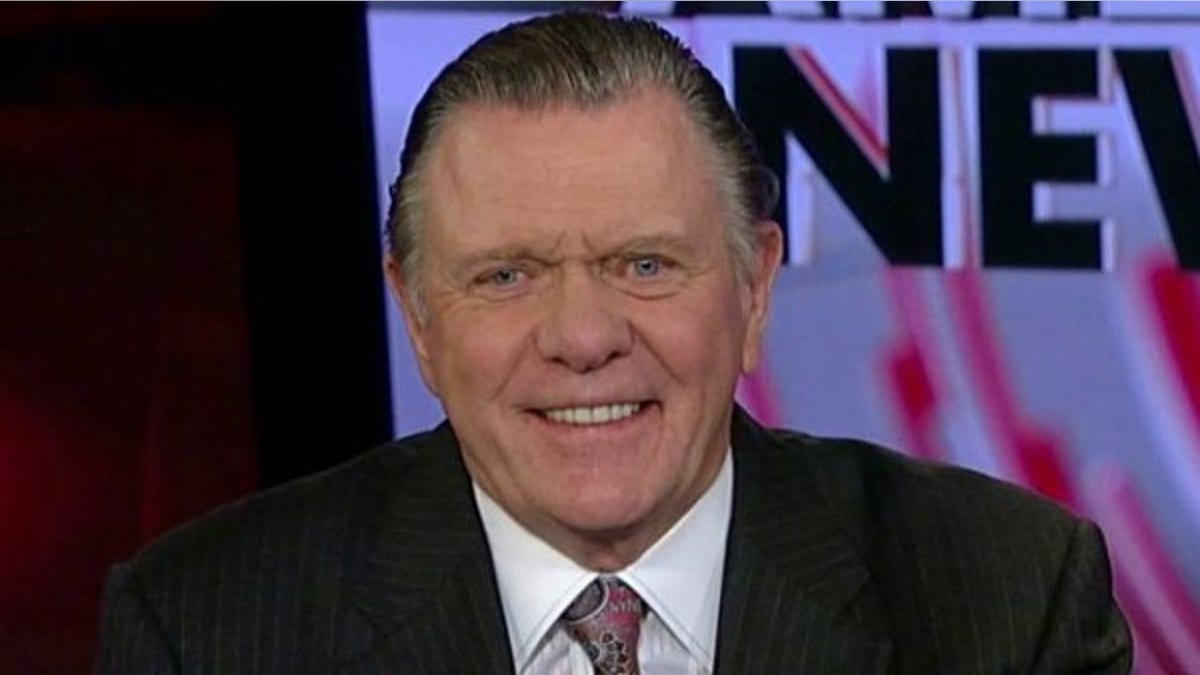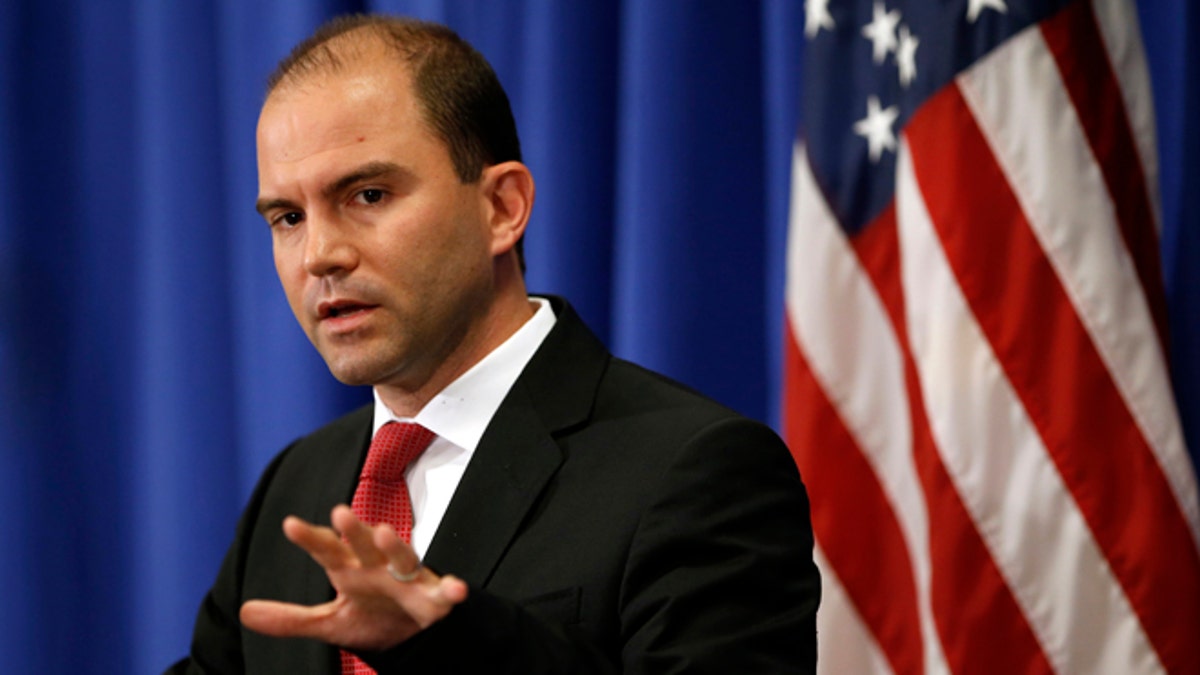
Critics of American strategy in Africa worry that the U.S. is relying too heavily on corruptible military partners in the fight against radical Islamist groups like al-Shabab (above), or Boko Haram and Al Qaeda in the Maghreb (AQIM) further west in countries like Niger.
The American military strategy in Africa, where three U.S. Green Berets were killed this week during an ambush, relies too heavily on inexperienced military partners that could be ineffective, corrupt or even working in cahoots with known terrorist groups, experts say.
The strategy has come under fire recently after a raid earlier this year resulted in American casualties. The Trump administration has made a renewed push in the region to establish footholds of stability where radical Islamist terrorism cannot flourish.
Critics of American strategy in Africa worry that the U.S. is relying too heavily on corruptible military partners in the fight against radical Islamist groups like al-Shabab, or Boko Haram and Al Qaeda in the Maghreb (AQIM) further west in countries like Niger.
THREE GREEN BERETS KILLED TWO WOUNDED IN NIGER AMBUSH
“You can watch in Mali and Somalia, the local militaries have swept through populated areas and cleared them,” said Katherine Zimmerman of the American Enterprise Institute. “We’ve been a little bit blind to the methods that the governments have been using to fight these groups. For example, the methods that the Nigerian government used to fight Boko Haram stoked the insurgency.”
The three Green Berets were part of a squad of “eight to 10” soldiers assigned to train Nigerien Armed Forces in their efforts against Al Qaeda in the Maghreb (AQIM) and other groups affiliated with ISIS.

NIGER COMMANDOS 100517: Map locates Niamey, Niger, where 3 US commandos were killed. (maps4news/HERE, U.S. Africa Command v)
Meanwhile, the Islamist terror group al-Shabab claimed it was tipped off ahead of time about a joint U.S. Navy SEAL-Somali Armed Forces raid on May 4. A SEAL, Senior Chief Petty Officer Kyle Milliken, was killed in the intense firefight.
TRUMP TARGETS AFRICA: INSIDE AMERICA'S QUIET WAR AGAINST TERROR
While it’s unclear if al-Shabab was indeed tipped off by U.S.’ Somali allies ahead of the raid, experts like Zimmerman believe such incidents show a real weakness in the strategy.
“We’ve convinced ourselves that working by and through a partner is going to solve the problem,” she told Fox News. “But in many cases, it’s making the problem we’re trying to solve worse.”
President Trump, who was elected partly for resisting foreign entanglements requiring large numbers of American troops, has nevertheless taken notice of the growing terrorist presence on the African continent. High-ranking members of his administration have been working on a strategy since the early days of his presidency.
“Our intent is to train and assist the African armies as much as possible, let them have the lead in fighting radical Islamist terrorists,” said retired four-star Army Gen. Jack Keane.

Retired four-star Army Gen. Jack Keane said the U.S. wants to to train and assist the African armies as much as possible and let them have the lead in fighting radical Islamist terrorists.
It’s a high-risk strategy that is still taking shape. And while the bulk of the resources are focused on East African countries like Somalia, the U.S. military is committing troops all across the African continent. Every official who spoke with Fox News emphasized that the objective is to help African nations protect themselves.
UN STUDY: YOUNG AFRICAN EXTREMISTS ARE DEPRIVED AND JOBLESS
“African solutions for African problems,” said an AFRICOM spokesman.
While former President Obama began the African troop build-up, it came after his top commanders realized mistakes had been made. And, experts say, Obama resisted the recommendations from his generals when it came to figuring out how to solve the problem.
U.S. officials admitted in 2012 that the rise of Islamist groups in Africa, such as Al Qaeda in the Maghreb (AQIM), which operates in West Africa and may have been behind the fight with the Green Berets in Niger, had caught them flat-footed. In July 2012, AFRICOM’s commander said that AQIM had become a “much more difficult” threat.
“We missed an opportunity to deal with AQIM when they were weak,” U.S. Army Gen. Carter Ham said at the time.
The Obama Administration was divided over how to tackle the rising threat. “Do we or don’t we” deploy drones, was a big part of the conversation as late as 2012, according to the Washington Post.
While Obama’s National Security Adviser Ben Rhodes gradually ramped up Special Forces and drones in Africa, he kept a close lid on their ability to make tactical decisions on when and where to strike, over fear of civilian casualties.

Obama’s National Security Adviser Ben Rhodes gradually ramped up Special Forces and drones in Africa but kept a close lid on their ability to make tactical decisions on when and where to strike, over fear of civilian casualties. (REUTERS)
“This was the Ben Rhodes machine. They did not trust the military to make these tactical decisions on their own in places like Somalia so it was very carefully managed,” said one source with knowledge of the inner workings of the Obama White House.
Keane said Trump has given U.S. operational commanders considerable more authority.
“He has decided to leave the employment of the force up to the discretion of the commanders,” he said. “Not up to Washington.”
AFRICOM tells Fox News at any given time there are approximately 5,000 to 6,000 U.S. personnel on the continent. The bulk of which, 4,000 or so, are based at Camp Lemonnier in Djibouti, which is often a staging ground for operations in both Somalia and Yemen, across the Gulf of Aden.
There are at least three drone bases in Africa – Djibouti, Cameroon and Niger. There is a suspected base in Tunisia, but that has not been confirmed by the U.S. military.
While there are reports of many more bases that are either temporary or staging grounds for equipment, AFRICOM says it maintains “15 enduring locations.” The Pentagon defines an enduring location as characterized “primarily by the sustained presence of allocated U.S. Forces." They span the continent. And some take issue with the idea that U.S. special operators are there in truly “advise and assist” roles, particularly because of what happened on May 4 with Milliken.
“There has been an overreliance on special operations as a force multiplier,” said retired Navy SEAL Scott Taylor, now a Republican congressman in Virginia. “The Obama administration wanted to show there were no boots on the ground…but there were boots on the ground. They would say they were advisers but of course they were there. This administration has changed it a little bit but there is still this overlap. I think we have to be more discriminatory in how we use our tier one special forces.”
AFRICOM insists it’s doing just that, and it points to the thousands of troops deployed on the continent on missions, including U.S. Army First Lt. Soule Malame. Reached at Garoua airfield in Cameroon, where the U.S. operates surveillance drones, Malame told Fox News about how he left the West African country of Togo when he was 24 and is now back in Africa working with a unit designed to win hearts and minds.
“The message we’re trying to get across here is: ‘What can we do to provide security for your area? What can we do together?’” Malame said the enemy in the area is Boko Haram, the group that spurred the “Save Our Girls” movement after it kidnapped 276 young women from a Nigerian school in 2014. “They use the religion to serve themselves. They come and say Americans are bad people, not your friend. We want you to join us so you can fight them.”
But Malame says the Cameroon villagers open up to him when they hear his local brand of French and learn that he, like them, is a Muslim.
“Boko Haram and Islamic State of West Africa come looking for money and looking for influence. But they will use the money not to serve God but their own purpose,” he said. “I tell the villagers, they are not Muslims. Muslims will not come and tell them to kill people for no reason, and rape women, and kidnap girls. We, the Americans, are here to help them.”
It’s a tall order, not least because of the tyranny of distance in Africa, and compounded by the U.S.’ reliance on shaky local governments to finish the job.








































